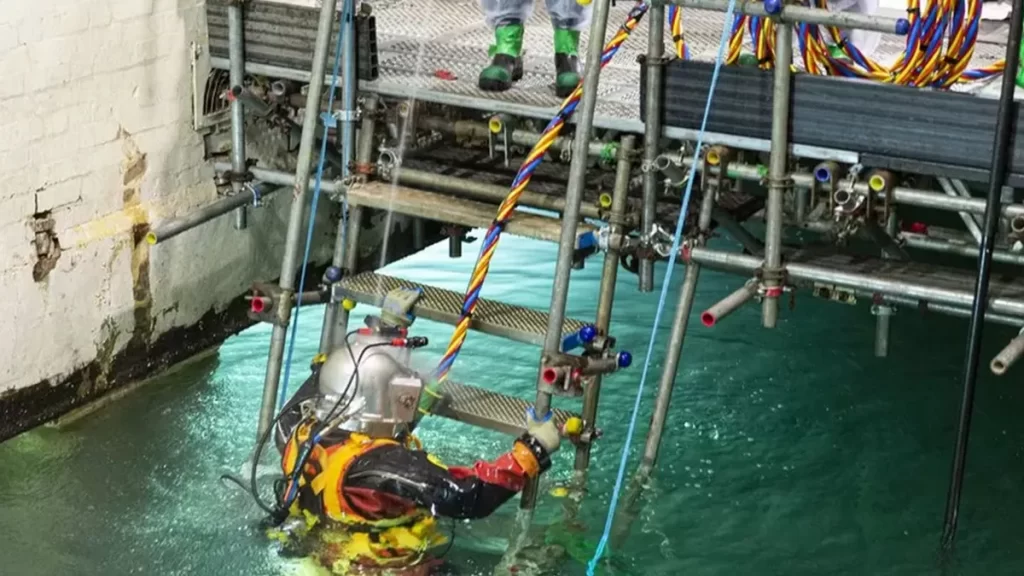In December 2022, a diver from the US nuclear diving team, Underwater Construction Corporation Ltd., made history by becoming the first person to enter Sellafield’s Pile Fuel Storage Pond in 65 years. The pond, one of the oldest buildings in Sellafield, was built in the 1940s to support the Windscale Piles, the site’s first nuclear reactors. It was used for cooling, storage, and de-canning spent fuel from the reactors as part of the UK’s post-war atomic weapons program. Since the plant stopped running in the 1960s, decaying nuclear fuel, algae, and other trash have turned into sludge, making the pond one of the world’s most complex decommissioning challenges.
Despite significant progress in retrieving and safely storing fuel, bulk sludge, and redundant equipment from the pond over the past decade, the project remains a priority for Sellafield Ltd. and the Nuclear Decommissioning Authority (NDA). The divers enter the pond via a specially installed access platform and position themselves on a metal dive stand with a shielded floor. From there, they work up to 3.5-hour shifts to retrieve sludge and debris from the pond floor, corners, and other hard-to-reach areas.
Diving in radioactive environments is a dangerous job, and it requires specialized training and equipment. The divers working in the pond have a lot of experience diving in radioactive environments around the world, including at Dungeness A and Sizewell A in the UK. The lessons learned from these sites have informed the team’s work at the Pile Fuel Storage Pond, which presents unique challenges due to its age and complexity.

While robots and other tools are usually used to clean up and shut down nuclear plants today, the divers’ work in the pond is essential. It is critical to safely retrieve and store the remaining nuclear fuel and debris in the pond to prevent any potential harm to the environment and the people living nearby. The divers’ work is also essential to ensure the decommissioning process moves forward efficiently and safely.
In conclusion, the entry of divers into the highly-contaminated Sellafield nuclear pond after 65 years is a significant milestone in the decommissioning process. The challenges posed by the pond’s age and complexity make the work of the divers a critical aspect of the decommissioning process. Their specialized training and experience in diving in radioactive environments are invaluable to ensure the safe retrieval and storage of nuclear fuel and debris. As the decommissioning process continues, the work of the divers will remain essential to ensure the safety of the environment and the people living nearby.


